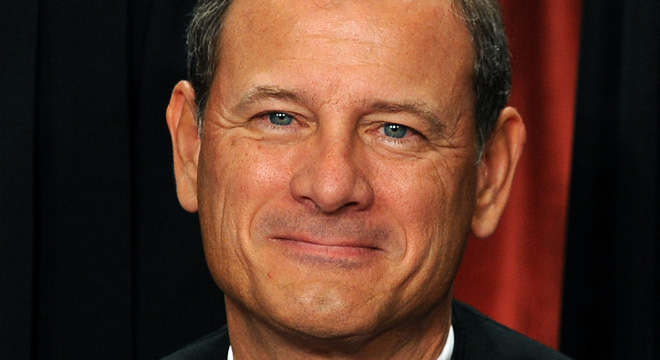When the Supreme Court convenes next week to hear arguments about the constitutionality of President Obama’s health care law, the first issue they will consider is the basic character of one of the law’s crucial features: the requirement that uninsured Americans either purchase coverage or pay a fine to the federal government.
Better known as the individual mandate, it’s the provision of the health care law at the heart of the GOP’s constitutional complaint. The plaintiffs — the 26 states suing over the law — contend the individual mandate exceeds Congress’ power to regulate interstate commerce, and the court’s ruling on that issue could have the most sweeping legal impact, perhaps upending decades of Commerce Clause jurisprudence.
But before they get to the question of whether the individual mandate is an unconstitutional expansion of the Commerce Clause, the justices have agreed to consider whether they even have the power to take up this case, since the mandate does not go into effect for another two years. And that decision will ride on a fine distinction: Is the individual mandate a tax or is it a penalty?
The arguments they will hear, and the decision they ultimately reach, will determine whether the court can proceed to rule on the merits of the law, or whether they must punt on the substance until after the mandate takes effect in 2014. Either decision would place several key actors in awkward political predicaments without any easy escape routes.
Meet the Tax Anti-Injunction Act, a nearly 150-year-old statute that prevents taxpayers from challenging the legality of taxes that haven’t yet been assessed against them. If the justices interpret the mandate as a tax, they may decline to rule on it until after individuals have been assessed a fee for failing to purchase health insurance in 2014 and those individuals file their own lawsuits in 2015. The Fourth Circuit Court of Appeals already reached that conclusion when it heard a similar case challenging the health reform law.
Neither the plaintiffs nor the defendants want that outcome, and so the justices have invited an outside litigator to appear before the court to argue that they have no business ruling on the merits for another three years.
Legal scholars say there are strong arguments on both sides of the jurisdictional question.
George Hani, a tax expert at Miller Chevalier, recently wrote, “There are strong arguments on both sides, and it is conceivable that the Supreme Court will find that the AIA bars the respondents’ challenge to the Affordable Care Act until the first penalty is imposed.”
Timothy Jost, a legal scholar and supporter of the Affordable Care Act, agrees with the former but not the latter. “[T]here are strong legal arguments on both sides, but politically all of the arguments favor hearing it, and there are strong arguments for not seeing it as a [legal] bar,” he wrote in an email.
All of this leaves next week’s stakeholders with peculiar choices.
Congress’ taxing power is so uncontroversial that, among its arguments, the administration will hold that the penalty for not purchasing insurance derives from the taxing power — but that its designation of the measure as a penalty, and not a tax, means the Tax Anti-Injunction Act ought not apply.
That argument passes muster with many constitutional scholars, and is by and large the same reasoning D.C. Circuit Court of Appeals Justice Laurence Silberman held that the Anti-Injunction Act did not preclude a ruling on the mandate. But to Republican political operatives, the administration may as well have admitted to levying a tax that could easily hit hundreds of thousands of middle-class Americans.
At a background briefing with reporters last week, senior administration officials downplayed that attack. They maintained the distinction between a penalty and a tax, and noted that the measure will only impact a small fraction of Americans — those who aren’t already covered by Medicare, Medicaid, employers or other means, and who choose not to avail themselves of the subsidized private insurance every state will offer residents.
In court, Republican plaintiffs will have to resist the urge to attack taxes, to argue that the mandate and its enforcement mechanism are two separate things; and that the mandate, not the penalty or tax meant to enforce it, is what exceeds Congress’ Commerce Clause powers.
But conservative justices face the toughest predicament: Punting until 2015 would be a passive way for Chief Justice John Roberts to avoid the election year pyrotechnics that would attend by ruling on the law this summer. But that would also mean three more years of uncertainty, three more years of implementation and then a final reckoning after the health care system has already undergone massive changes to accommodate the law.
Moving to the merits of the case right away, by contrast, is what all the stakeholders want and expect. And that means Roberts and company will likely have to decide this year whether to betray their conservative brethren or hand down one of the most expansive and controversial decisions in the court’s modern history.










